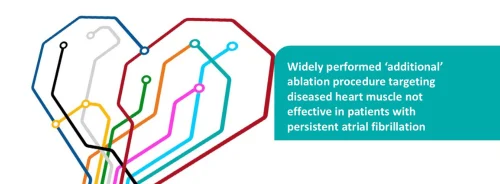Eli Lilly is making significant strides in developing efsitora alfa, a once-weekly insulin for treating type 2 diabetes. With positive preliminary results from two pivotal studies, Lilly is positioning itself as a strong competitor to Novo Nordisk, whose once-weekly insulin, icodec, is already available in multiple global markets. While Novo Nordisk’s product faces regulatory challenges in the U.S., efsitora alfa appears to be on a promising trajectory toward FDA approval. This article delves into the latest data, the broader clinical landscape, and what it means for diabetes treatment options moving forward.
Efsitora Alfa’s Promising Clinical Data
Efsitora alfa is engineered to offer type 2 diabetes patients stable glucose control over an entire week, reducing the need for daily injections. In two recent Phase 3 trials, one involving patients new to basal insulin and another focusing on patients switching from daily injections, efsitora showed promising results. In the 52-week basal insulin naïve study, efsitora demonstrated a 1.31% reduction in haemoglobin A1C, closely matching the 1.27% reduction seen with insulin glargine, a daily insulin. Similarly, in the 78-week study involving patients already using basal insulin, efsitora reduced A1C by 0.86%, compared to 0.75% for Novo Nordisk's once-daily insulin, Tresiba. These results confirm that efsitora is non-inferior to daily insulin options, a critical milestone in Lilly’s quest to deliver a simpler treatment regimen for diabetes patients.
Lilly’s Broad Phase 3 Programme
Eli Lilly’s Phase 3 clinical programme for efsitora is extensive, encompassing five studies with about 4,000 participants. Four of these studies focus on type 2 diabetes, while one is aimed at type 1 diabetes. The two recent trials contribute to a growing body of evidence supporting the efficacy and safety of efsitora alfa, particularly its ability to match the performance of once-daily insulin while offering the convenience of a weekly injection. The company plans to share further detailed results at upcoming medical conferences, bolstering its case for regulatory approval. Should the remaining studies yield positive outcomes, efsitora could provide a more manageable alternative for many diabetes patients, significantly reducing the treatment burden.
Competition and Regulatory Outlook
Novo Nordisk's once-weekly insulin, icodec, is already available in markets like Europe, Canada, and Japan, but the company has faced regulatory hurdles in the U.S. The FDA rejected its submission in July 2023, citing concerns about the manufacturing process and hypoglycemia risk, particularly in type 1 diabetes patients. This setback presents an opportunity for Lilly to gain ground. While Novo Nordisk works to address the FDA’s concerns, efsitora alfa’s positive trial results put it in a strong position for FDA consideration. If Lilly can secure approval before Novo Nordisk resolves its issues, efsitora alfa could be the first once-weekly insulin available in the U.S. market, giving Lilly a significant competitive advantage.
Conclusion
Eli Lilly’s efsitora alfa is emerging as a promising contender in the evolving field of diabetes treatment. With positive results from two pivotal trials, Lilly is positioning itself to compete head-to-head with Novo Nordisk’s icodec. As the regulatory landscape unfolds, efsitora alfa could potentially revolutionise insulin therapy for type 2 diabetes patients by offering a simpler, once-weekly injection, ultimately improving the quality of life for millions of people managing this chronic condition.
Source: PR Newswire
Image Credit: iStock






